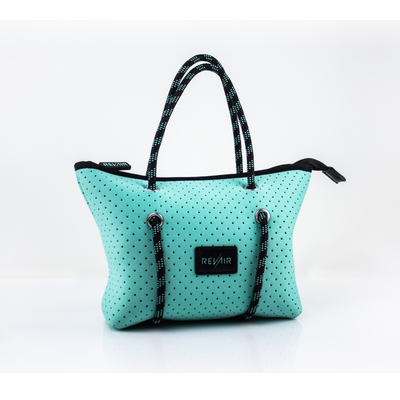
Tips and Tricks for a Healthy Scalp

Vibrant natural hair starts from the top. Our scalp is the foundation of new hair growth - and it deserves some appreciation! It may surprise you to learn just how dramatically a healthy scalp impacts our hair's strength, resilience, shine, and length. Much like a good skincare routine, scalp care is essential for an effective beauty and wellness regimen. An effective scalp routine is especially important for keeping curly hair fresh, radiant, and full of movement and bounce. Type 2 and Type 3 hair, which ranges from wavy to tight curls, is typically prone to dryness and slow hair growth. While we often mistakenly blame our hair texture, the solution usually likes at the root of the problem -- your scalp.
This blog is all about showing your scalp some love. We've taken the top tips and tricks for a healthy scalp and compiled them in one quick reference guide so you can start your natural hair journey from the top.
What Does a Healthy Scalp Look Like?
When defining a healthy scalp care routine, it can be helpful to set a clear foundation. We often hear of the benefits of maintaining a healthy scalp, but what does a healthy scalp look like? Those with Type 2 and Type 3 hair know it can be difficult to get a clear picture of your scalp beneath the voluminous hair covering it. Don't stress; we've got your back. Here are three simple ways to identify a healthy scalp.
Step 1: Do a Comb Check
Just like the skin on your face, your scalp deserves to be smooth and clear. The first sign of a healthy scalp is flake-free skin. Of course, it's not always easy to see what your scalp looks like. Examining your comb after a shower is the easiest way to tell if your scalp is flaky or smooth. There should be little to no flakes as you're brushing out your hair. You can also inspect your part line and gently move your curls aside to see if you're struggling with dryness and flaking. If you are seeing more flakes than you'd like, this means your scalp needs some help exfoliating and getting rid of dead skin cells.
Step 2: Know Your Scalp's Healthy Glow
Being able to identify your scalp's natural color will help you determine if any irritation arises. This can alert you to any changes that develop seasonally, when using new products, or simply as a sign that your scalp needs a little extra TLC. Redness is a sign of poor scalp health. Take a moment to check your scalp at the base of your curls, then use a mirror to get a view of the root line. Gently massage your scalp to feel for any bumps that may indicate irritation. A healthy scalp should appear as clear, unbothered skin, free of inflammation and discoloration.
Step 3: Identify Irritation
Sometimes, we can determine what a healthy scalp looks like by what our scalp feels like. Itching isn't something to be endured along with natural curls. Too often, we're told that a bit of irritation comes with the territory. However, an itchy scalp is a sign of declining scalp health. If your protective style is beginning to itch or if you're simply noticing irritation with your natural waves and curls, this means your scalp is likely inflamed. Don't ignore an itchy scalp. Take this as your cue to begin a more robust scalp care routine to soothe your skin and promote new hair growth.
Dr. Michele Green, a board-certified NYC dermatologist, summarizes scalp care with, "it's very important to maintain a healthy scalp since this is where the hair follicles reside and where your hair starts to grow. A healthy scalp should be clear of flakes and irritation or redness, and it should be free of dryness or any signs of infection, or disruption of the skin on the scalp."
Check in with your scalp regularly to spot any signs of irritation before they lead to excess hair loss. The more familiar you become with scalp care, the easier it will be to identify signs of a healthy scalp for curly and wavy hair types.
How Can Scalp Stimulation Improve Scalp Health and Support Hair Growth?
The best way to support a healthy scalp -- and, in turn, healthy hair growth -- is with regular scalp massages. We often hear of the benefits of a relaxing massage after a workout or as part of your self-care routine. Give your scalp the same love by stimulating hair growth. This is your time to prioritize peace and relieve tension in your cranium, neck, and shoulders. A scalp massage has a variety of benefits when it comes to promoting new hair growth as well as relieving stress.
Scalp massages can be done with hot oil, steam, or simply using your fingers or a scalp massager to increase circulation to the follicle. You can treat yourself to a massage at your favorite salon or work a DIY massage into your at-home natural hair care routine with your favorite essential oils and soothing playlist. There's no wrong way to prioritize self-care for your scalp!

Benefits of Scalp Massage
Stimulating blood flow to the hair follicle empowers new hair growth. If you're at a plateau when it comes to growing out Type 2 and Type 3 hair, a common reason may be that your scalp isn't getting the attention it deserves. Exfoliating your scalp before massaging the root layer clears away old skin cells to make room for new growth. You can also add oil or simply shower steam to moisturize and hydrate. Your curls thrive on hydration to grow. A clean, moisturized scalp provides the nutrient delivery necessary for long, luscious locks. In addition, regular stimulation reduces hair loss and shedding.
If you work long hours at the computer or frequently suffer from tension in your head, neck, and shoulders, a scalp massage is a perfect tool to naturally alleviate muscle aches and pains. Also, try incorporating deep breathing exercises into your routine to promote peace and tranquility. A 2016 study discovered that scalp massages were highly beneficial in the reduction of the stress hormone cortisol. So go ahead -- give yourself permission to kick back, relax, and unwind while nourishing your natural hair.
What Are the Best Products for Scalp Health to Use in an Easy Scalp Care Routine?
Choosing the right products for a scalp care routine is the first step in building healthier habits. The team at RevAir has put together a few essential products to get you started on your scalp care journey as well as when and where to use them.
Hair Oil or Serum
Hair oil or serum is essential for moisturizing your scalp. Focus on incorporating natural oils such as argan, rosehip, jojoba, and coconut oil. You can apply scalp oil immediately after showering as well as throughout your week whenever your scalp needs a refresh. We recommend using hair oil after you've been out in the sun for a while to rejuvenate dry skin cells.
Coconut Oil
Coconut oil is one of the best natural products for scalp care. It is a natural antibacterial and antifungal. This makes it ideal for treating your scalp and preventing build-up and inflections. Coconut oil lubricates and creates a protective seal around the skin that acts as a natural barrier. After an exfoliating scalp scrub, finish your routine by locking in the moisture with a layer of coconut oil. This product is a game changer for those who frequently wear protective styles as it can also be used to keep locs and braids looking fresh.
UV Protectant Spray
Turning down the heat is an important part of promoting scalp wellness. UV protectant spray is an essential scalp care product during the summer months. Apply a thin layer to your hairline and part before enjoying some fun in the sun. Also, if you're planning to be out for a longer period or if you're going swimming or engaging in activities that may call for a sunscreen touch-up, bring a travel-sized bottle along in your purse or beach bag for on-the-go sun protection. Of course, we understand sunburns happen to the best of us. If you do experience a burn along your part this summer, we recommend treating your scalp with enriching aloe vera spray to soothe any irritation as part of your post-sun ritual.
Keep your home scalp care routine low-heat by ditching traditional hairdryers. Heat styling is one of the number one causes of scalp irritation due to the proximity of styling devices to your sensitive skin. Combined with the frequency of use, this can take a significant toll on your scalp health over time. Opt for a healthier alternative for natural hair care with RevAir's uniquely designed reverse air hairdryer! Our tools were made with curly hair health in mind to promote effortless styling alongside healthy hair care. Learn more about how to use your RevAir as part of your home scalp care routine.
Natural hair growth occurs on a healthy scalp! Make sure you're starting your natural hair care routine with a great foundation. If you're looking for more scalp care how-to's, reach out to our team at RevAir for tips, tricks, and ways to make your curls shine even brighter.

















